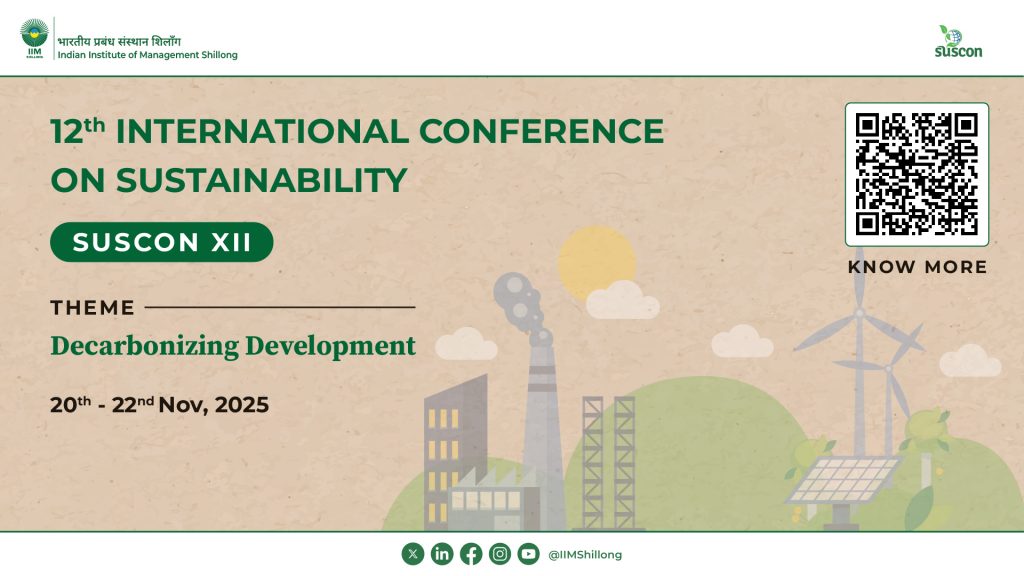In the last eighteen years since inception, IIM Shillong has kept alive and strengthened its intellectual and moral commitment to the overarching cause of integrating Sustainability into every aspect of its academic programmes and initiatives covering all aspects of human endeavour. SUSCON, the flagship event of the Institute, is not just a Conference or another academic activity, it is a movement that has created a platform for dialogues and deliberations at a local, national as well as global level. It aspires towards creating a value-based, humane and sustainable future for business, academia, Government, civil society groups, NGOs and thinkers and practitioners covering all disciplines of management and beyond to include all other domains of pursuit of knowledge and practice. It dreams of leaving behind for posterity ethically driven business organizations, a sane and happy society, and a sustainable planet earth to be created by visionary, conscientious and inspired leaders of thought and action from enlightened academic and research institutions.
Over the years, many eminent personalities from the world over have shared their valuable insights on various aspects of Sustainability. SUSCON has been blessed by the presence of Bharat Ratna Dr. A P J Abdul Kalam, former President of India, Padma Bhushan Dr. Sundarlal Bahuguna, Jadab Payeng, the Forest Man of India, Dasho Karma Ura, the President of Centre for Bhutan Studies and Gross National Happiness (GNH), and Padma Shri Shyam Sundar Paliwal as our Chief Guests among many others





















